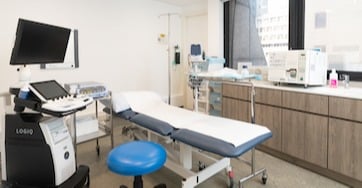Written by: Dr Tim Trodd (Functional Medicine)
At medical school Doctors are taught to assess a patient using a set formula. That is: problem, history, examination, investigation, diagnosis and treatment. This is excellent for the detection and treatment of disease, but not really helpful for the management of an individual’s health over the longer time frame of years and decades. The process of aging is not a disease, it is a fundamental and universal process that every human experiences. The healthspan, (the period of time that a person is healthy) will be shorter than the lifespan, that is the person will probably live part of their life in a healthy state and part in poor health.
Modern Medicine
Modern medicine is very effective at detecting and treating disease. When I qualified coronary artery disease presented with a coronary event (angina or a heart attack) that was fatal or, if the patient survived, required bypass surgery, a massive operation. Now CT Angiogram is readily available and stenting is a routine relatively minor procedure. Until recently HIV / AIDS was invariably fatal but now with effective antiviral treatments HIV hardly shortens lifespan. Until the past decade stage 3 and 4 Melanoma, Lung Cancer and triple negative Breast Cancer invariably shortened lifespan, but now due to Keydura and other biologicals there is a chance of cure. Metabolic disease such as obesity and diabetes (which are the most common cause of cancer in non-smokers) now have an array of treatments that can manage and even reverse these problems.
The outcome is that more and more people with access to modern medicine will grow old and require some form of assisted living or care. Most of us reading this will require some form of assisted living, our goal has to be to delay loss of function and to extend our Healthspan, enjoy our lives, be healthy, productive and delay the need for assistance as far as possible.
Complicated Problems v Complex Problems v Not Problems at All
Putting a man on the moon is complicated and expensive but doable, we know that for sure. Predicting the future is always a complex problem, all the computing power in the world cannot figure out the winner of a game of football in advance. Modern medicine is excellent at conducting trials into the effectiveness of medicines, but we never know which patients will benefit from (or be harmed by) that treatment in advance of it being started.
Modern medicine is excellent at detecting and treating disease but Aging, loss of health and death are not diseases at all. They are a biological process that every human being experiences. This process does not need an evidence-based approach as it is not a disease. Aging can be managed and delayed, but not prevented.
What Does This Mean for the Medical Profession?
Medicine is sitting on the precipice of a paradigm shift towards more individualised health care. This shift which will be accelerated by technological change in addition to AI. At OT&P we are continually considering big picture long-term questions such as “what impact will AI have on our organization?”, “how do we integrate information from wearables?”, “what services should we offer for healthspan and longevity?” (PLEASE LINK TO ARTICLES ON AI/WEARABLES ETC)
Firstly, we believe that there will always (or at least for some considerable time) be a need for specialist services. We will continue to require Cardiology, Oncology, Surgery, Psychiatry, Obstetrics and Gynaecology etc services. Equally we cannot expect our specialist colleagues to engage with or provide a longevity service. This is something that will happen apart from specialist medicine.
For primary healthcare physicians (General Practitioners), there will always be a need for acute care, vaccinations and medical checks. However, in my view, primary healthcare physicians are well positioned to move into Medicine 3.0 which will be facilitated by a team providing input on medical treatment, diet, exercise, stress management and the individual requirements of that specific person. The primary healthcare physician can be an integral part of that team.
The patient is of course at the centre of the team. The doctor will provide medical services and monitoring. Consider a patient starting a health program who is stressed, unfit and overweight. They may need management of their medical conditions such as blood pressure, perhaps a weight loss drug such as Ozempic, regular input from and Health Coach and an exercise program from a Physical Trainer. In addition, their doctor will need to monitor progress which may be standardized test of strength and fitness and a measure of body composition such as DEXA. There is no set protocol for this (unlike the Medicine 2.0 approach), everybody has an individual program.
What Does This Mean for Society?
We live in a society that is changing. Birth rates are plummeting in many parts of the word and life expectancy is improving for those with access to all the resources of modern medicine. This is causing a huge increase in the ratio of the elderly to children and young adults and obesity is rising worldwide. There is also a societal need for people to be productive for longer and be self-sufficient for longer.
The proportion of those who can benefit from Medicine 3.0 will vary from society to society. People living in poverty cannot benefit. If you are living in sub standard housing worrying about food and education for your only child, you cannot make choices that benefit you in decades. A family in poverty can only access the healthcare that they are, literally, given. Equally somebody living in a centrally planned economy will not be provided with and be unable to access the necessary healthcare resources. Medicine 3.0 will be, at least in the near term, a first world solution.

 Central General Practice
Central General Practice
 Repulse Bay
Repulse Bay
 Clearwater Bay
Clearwater Bay
 BodyWorX Clinic
BodyWorX Clinic
 Central Specialist Clinic
Central Specialist Clinic
 MindWorX Clinic
MindWorX Clinic
 Partner Clinics
Partner Clinics
 Family Clinic
Family Clinic
 OT&P Annerley Midwives Clinic
OT&P Annerley Midwives Clinic
